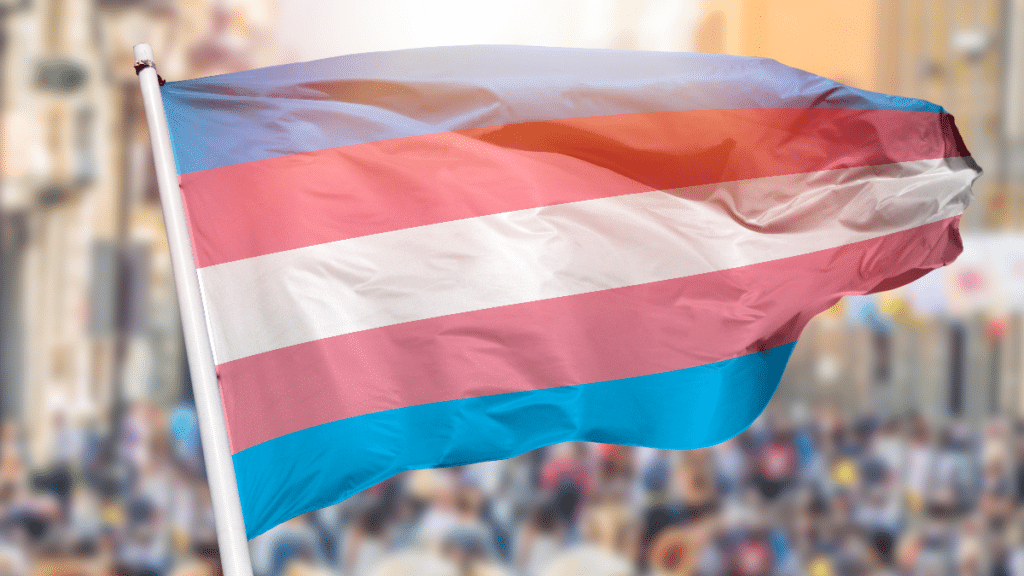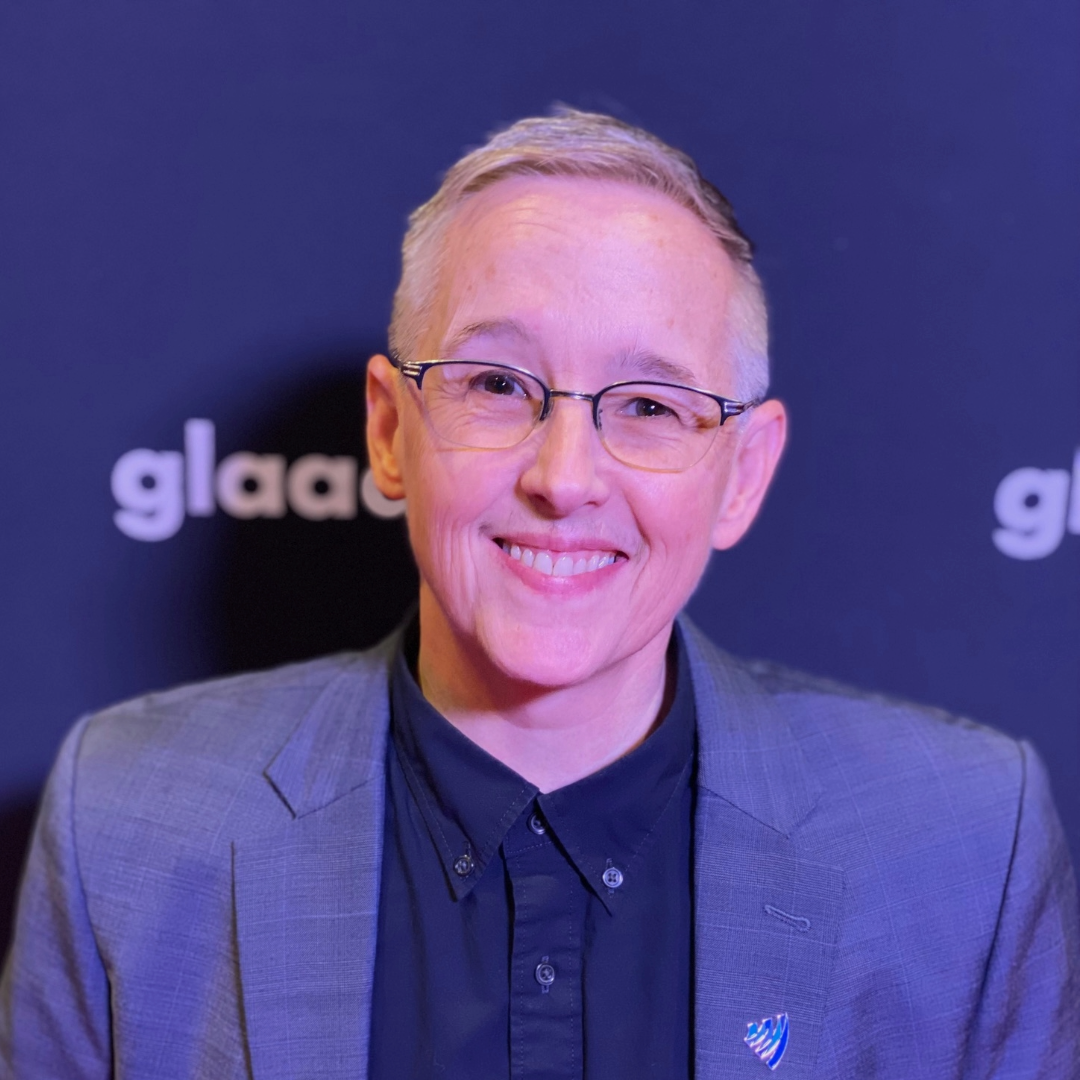Understanding Targeted Misgendering and Deadnaming as Hate Speech
Jenni Olson, Leanna Garfield / Jun 7, 2023Leanna Garfield is the Manager of the Social Media Safety program at GLAAD and Jenni Olson is the Senior Director.

LGBTQ Pride Month is an appropriate time to reflect on the topic of targeted misgendering and deadnaming online — especially in light of the dramatic departure last week of Twitter’s head of trust & safety, after Elon Musk overruled his staff’s decision to limit the reach of a notorious anti-trans video by far-right extremist and Daily Wire pundit Matt Walsh (the video was specifically flagged for targeted misgendering).
Alongside inflammatory mischaracterizations of transgender healthcare and baseless assertions of trans and LGBTQ people being threats to children, the practice of targeted misgendering and deadnaming has emerged in recent years as one of the most common modalities for expressing contempt toward trans and nonbinary people across social media platforms.
The trope is extremely popular amongst high-follower anti-LGBTQ accounts and is especially utilized to bully, mock, and harass prominent trans public figures (Admiral Rachel Levine, Dylan Mulvaney, 16-year-old Zaya Wade to name a few), while simultaneously expressing hatred of trans and nonbinary people in general.*
As is true with other hate-driven tropes, the far-right pundits, politicians, and accounts who engage in the practice tend to disingenuously feign that such expression is not hate speech, even as their animus is unmistakable, both from the posts themselves and from their clearly stated positions on the basic rights and dignity of trans and LGBTQ people. To be very clear — this isn’t about accidentally getting someone’s pronouns wrong or mistakenly mentioning their old name.
A particularly egregious example of this practice is a July 2022 YouTube video in which far-right ideologue Jordan Peterson viciously misgenders and deadnames actor Elliot Page dozens of times in the course of a 15-minute rant. YouTube demonetized — but didn’t remove — the video, which has 3.5 million views, for violating its “advertising policies around hateful and derogatory content.” Peterson is known for his virulent anti-LGBTQ extremism.
In July 2020, in response to being relentlessly targeted online with misgendering, U.S. DHS Assistant Secretary for Health, Admiral Rachel Levine succinctly characterized such attacks as “intolerance and discrimination against LGBTQ individuals, and specifically transgender individuals.”
“It’s an attempt to bully us; it is abusive; it is harassment,” trans attorney and Harvard Cyberlaw Clinic instructor Alejandra Caraballo explained last year to Reuters.
The Current State of Policies on the Major Platforms
Currently, of the five major platforms – TikTok, Facebook, Instagram, YouTube, and Twitter – only TikTok explicitly prohibits targeted misgendering and deadnaming in its hate and harassment policy. While for both Facebook and Instagram, Meta’s “Gender Identity Policy and User Tools” policy explains: “For private individuals, we remove claims about a person’s gender identity if the individual reports it to us." Though it requires direct reporting by the individual user, clearly the policy should be interpreted to cover both targeted misgendering and deadnaming, which involve a “claim about a person’s gender identity”.
In addition to the self-reporting requirement, unfortunately this policy also does not apply to public figures, a loophole which leaves transgender notables unprotected and allows anti-trans hate accounts to target them as a way of expressing general anti-trans animus. Meta has not made any public statements with regard to this interpretation of the policy, though the company vehemently insists in its policies that “Hate speech against the LGBTQ+ community is prohibited.”
In 2021, GLAAD joined Media Matters for America and 18 other organizations in calling for YouTube to add such a prohibition to its hate speech policy. In a March 2023 Google Civil Rights Audit, consultants at WilmerHale convey similar guidance to Google, advising that:
YouTube’s policies do not on their face prohibit intentional misgendering or deadnaming of individuals. Both acts have the potential to create an unsafe environment for users and real-world harm. We recommend Google review its policies to ensure it is appropriately addressing issues such as the intentional misgendering or deadnaming of individuals and continue to regularly review its hate and harassment policies to adapt to changing norms regarding protected groups.
Twitter first enacted its explicit policy against targeted misgendering and deadnaming in 2018, but removed it in April 2023. The company’s increasingly worrying policy and product decisions since Elon Musk’s acquisition includes Musk’s own personal, extensive anti-LGBTQ posts and anti-trans comments on the platform which, according to observers, revealed him to be a far-right hate-driven extremist. His behavior is not only hateful, it's bad for business. As Free Press co-CEO and Stop Toxic Twitter campaign co-lead Jessica Gonzalez recently put it, Musk is sending the platform into “a death spiral as hundreds of advertisers have joined the mass exodus from the platform.”
All Platforms Should Adopt Policies That Truly Protect Transgender Users
Every major social media platform has policies against hate speech, generally defined as content that attacks or promotes violence or hatred against groups on the basis of protected characteristics, including race, disability, sexual orientation, gender identity, and more. As has been well-documented by researchers, hate speech online has been linked to a global rise in real-world violence impacting historically marginalized communities.
The practice of targeted misgendering and deadnaming has been identified by the Anti-Defamation League (ADL) and other civil society groups, including GLAAD and Media Matters, as a form of hate speech. Social media companies committed to maintaining safe environments for trans and nonbinary people should be able to recognize targeted harassing and abusive behavior directed at them as harassment and abuse, and should enforce their policies accordingly.
It is also vitally important to note that even when platforms do not have express prohibitions against targeted misgendering and deadnaming, such behaviors by definition violate existing general hateful conduct policies which protect against hate and harassment on the basis of protected characteristics, including gender identity.
That said, in its annual Social Media Safety Index report GLAAD urged all platforms to incorporate into their hateful conduct policies an explicit prohibition against targeted misgendering and deadnaming of transgender and nonbinary people. This recommendation remains an especially high priority in our current landscape where anti-trans online rhetoric and attacks are so prevalent, vicious, and harmful — and where we also see such an offline onslaught targeting the trans community, ranging from hundreds of bills in state legislatures seeking to retract basic rights to threats (and acts) of physical violence.
The 2023 GLAAD Social Media Safety Index will be released in mid-June.
- - -
*A 2022 report from GLAAD, UltraViolet, Kairos, and the Women’s March (From URL to IRL: The Impact of Social Media on People of Color, Women, and LGBTQ+ Communities - We Are UltraViolet) shows that 60% of LGBTQ people feel harmed not only from experiencing harassment and hate directed against them personally, but also from witnessing hate and harassment of other LGBTQ community members such as celebrities and public figures. Clearly, directing hate against trans notables is used as a vehicle for expressing general anti-trans bigotry and hate. When companies maintain policy loopholes that allow such targeting of public figures (as does Meta for instance), this perpetuates harm against entire communities.
Authors

